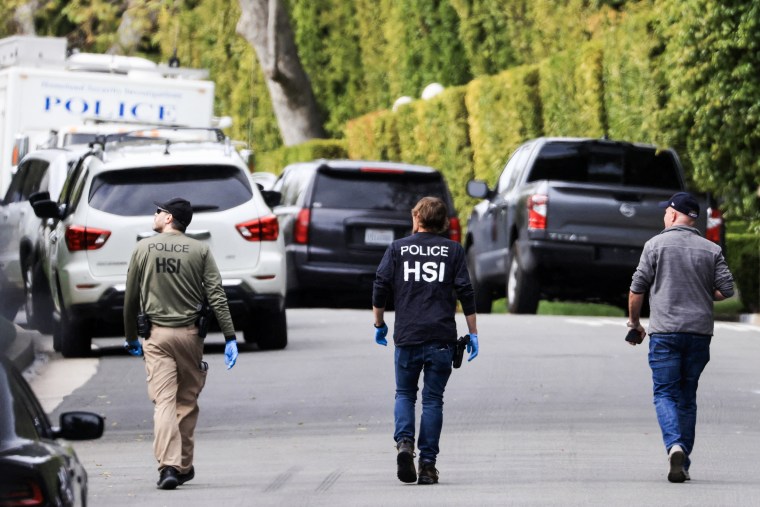A federal judge ordered prosecutors Tuesday to get rid of copies of 19 pages of notes taken from Sean “Diddy” Combs’ jail cell after his lawyers argued the seizure violated attorney-client privilege.
U.S. District Judge Arun Subramanian ruled that the court will keep the papers while prosecutors and Combs’ lawyers submit briefs about the issue over the next few weeks.
Prosecutors have accused Combs of trying to influence witnesses while he is behind bars awaiting trial on charges of racketeering, sex trafficking and transportation to engage in prostitution.
Combs was arrested this fall and charged with sex-related crimes that prosecutors say are linked to his music empire, which they allege he used to abuse and exploit women.
Combs has denied both the charges and prosecutors’ allegations that he is tampering with witnesses from jail. His defense has fired back at prosecutors, accusing the government of having committed “egregious, willful and harmful breach of the attorney client privilege” by seizing papers from his jail cell that should be protected from authorities.
At Tuesday’s hearing, Combs, 55, who wore olive prison clothing garb, appeared to have lost weight since his last court appearance. He smiled as he entered the courtroom but appeared to become grim as the hearing went on.
Assistant U.S. Attorney Christy Slavik said the papers — 11 pages and eight pages of a calendar book — feature Combs’ writings about paying off witnesses and finding dirt on victims.
“A witness was paid off and finding dirt on two different victims is not privilege,” Slavik said.
She said that on Oct. 14, Combs called a family member to work with someone who is not a lawyer about finding information about an accuser.

Defense attorney Marc Agnifilo said he wants to know how prosecutors obtained the papers and to see the surveillance video showing the incident in Combs’ cell at the Metropolitan Detention Center in Brooklyn. He argued that the incident could lead to the dismissal of the indictment or the recusal of the entire prosecution team.
Slavik said the pages were obtained during a search that was part of a planned sweep to address contraband and drugs. No member of the prosecution team was aware of or responsible for the search — it was conducted by the Bureau of Prisons, the prosecutor told the judge.
A Bureau of Prisons investigator said at Tuesday’s hearing that the search was part of an ongoing covert investigation and that the materials were received in a completely appropriate manner.
“The bottom line is that no multi-agency law enforcement initiative justified rifling through Mr. Combs’ personal handwritten notes of conversations with his lawyers, and the prosecutors’ arguments to the contrary lack all credibility,” Agnifilo wrote in a response to the court Tuesday.



